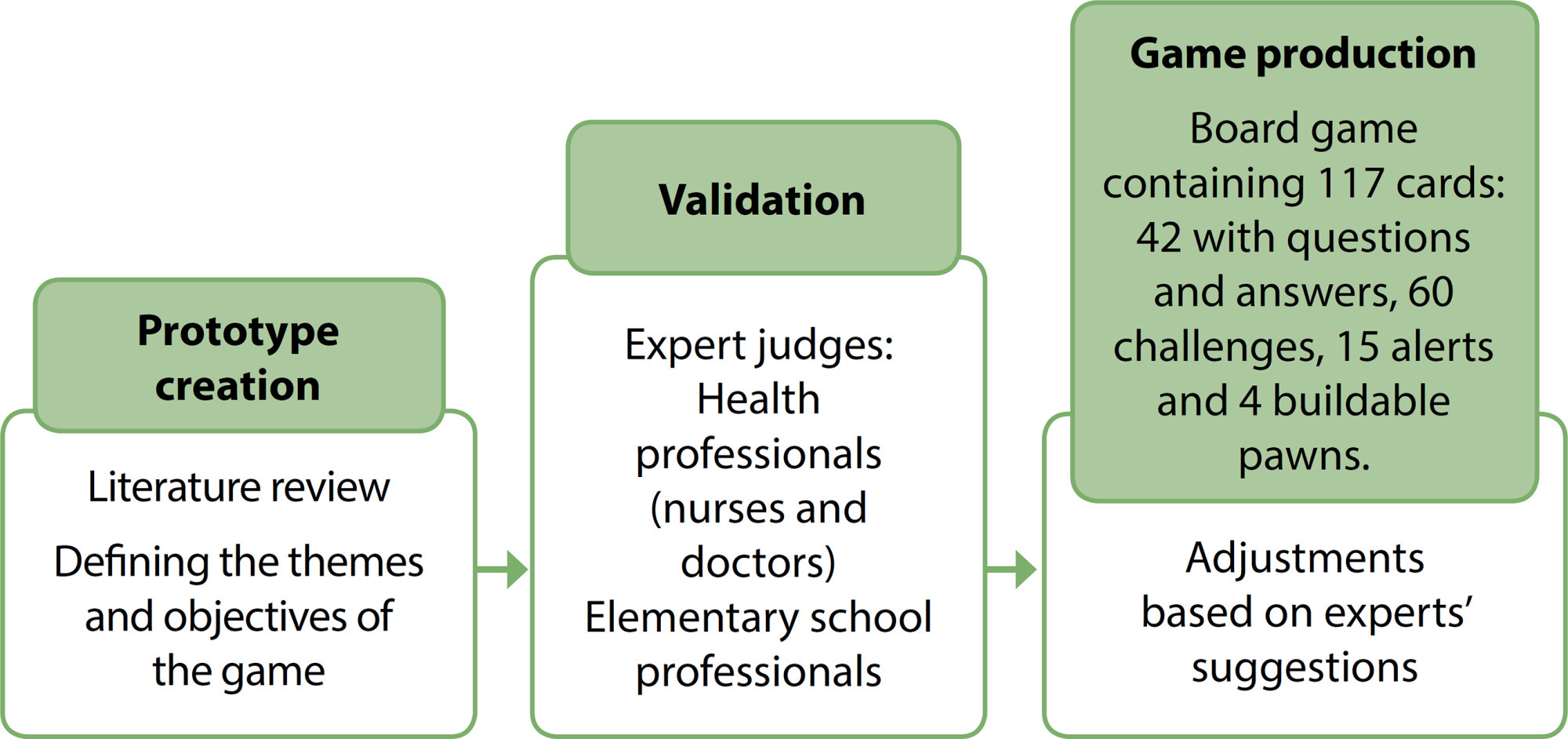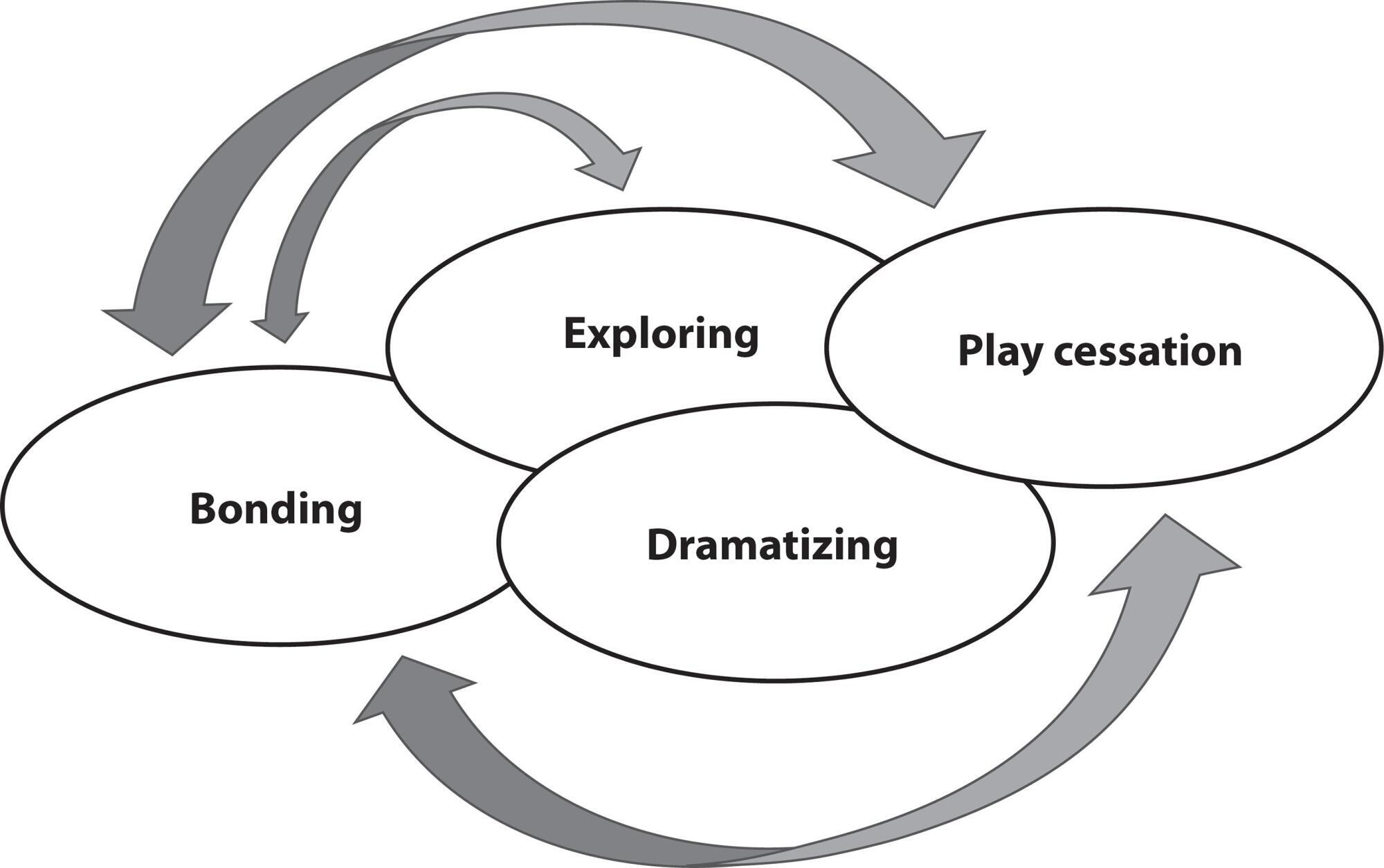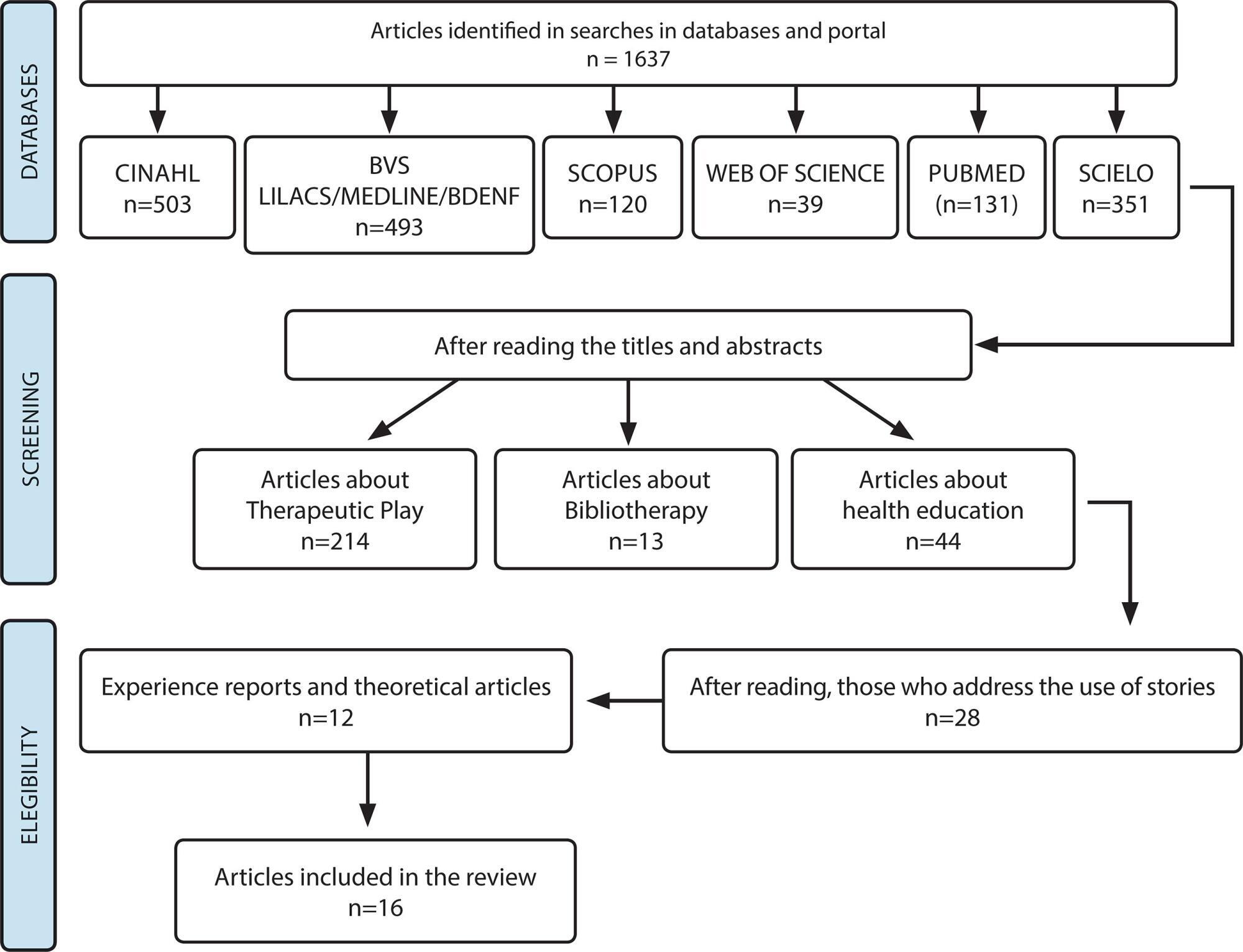-
REFLECTIVE
The act of playing as a signifier for the application of the dramatic Therapeutic Toy performed by the nurse: theoretical reflection
Revista Brasileira de Enfermagem. 2022;75(2):e20210062
10-18-2022
Resumo
REFLECTIVEThe act of playing as a signifier for the application of the dramatic Therapeutic Toy performed by the nurse: theoretical reflection
Revista Brasileira de Enfermagem. 2022;75(2):e20210062
10-18-2022DOI 10.1590/0034-7167-2021-0062
Visualizações0Ver maisABSTRACT
Objective:
To reflect on the possible contributions of the act of playing as a signifier in the use of dramatic Therapeutic Toy performed by the nurse.
Methods:
Theoretical-reflexive study, based on three moments: The language of the unconscious that emerges as a signifier when playing; How the dramatic Therapeutic Toy is used by the nurse; and the act of playing as a signifier during the application of the dramatic Therapeutic Toy: contributions to nursing practice.
Results:
Through the intervention of the nurse in the sessions, the act of playing mediated by the dramatic Therapeutic Toy provides the child with the opportunity to elaborate on signifier elements that had not been meant by him.
Final considerations:
Through the dramatic Therapeutic Toy, the articulation of the child's organism with his reality in the formation of the self constitutes an advance for the production of knowledge and nursing assistance to the child, enabling complete care and allowing the elaboration of their anxieties, which collaborates so that the child constitutes himself as a subject.
-
ARTIGO ORIGINAL
Validation of an educational game about first aid for schoolchildren
Revista Brasileira de Enfermagem. 2021;74(6):e20201107
08-20-2021
Resumo
ARTIGO ORIGINALValidation of an educational game about first aid for schoolchildren
Revista Brasileira de Enfermagem. 2021;74(6):e20201107
08-20-2021DOI 10.1590/0034-7167-2020-1107
Visualizações0Ver maisABSTRACT
Objectives: to validate the content and appearance of an educational game about first aid for schoolchildren with experts in education and health.
Methods: this is a methodological, quantitative and descriptive research, carried out using the Delphi technique, using an online collection instrument, covering 55 items of the game. Content and appearance assessment was performed by 26 judges. The data were analyzed using Content Validity index.
Results: the final prototype is presented in a board format, composed of four buildable pawns and 117 cards between questions, alerts and challenges. Overall Content Validity index of 0.95 and greater than 0.8 was obtained for all items in two Delphi rounds.
Conclusions: the educational game validated by experts is a pedagogical tool for teaching first aid to schoolchildren as an option to traditional educational practices.

-
ORIGINAL ARTICLE
Growing up (being) without a mother: children’s experiences during maternal imprisonment
Revista Brasileira de Enfermagem. 2020;73(suppl 4):e20200413
11-11-2020
Resumo
ORIGINAL ARTICLEGrowing up (being) without a mother: children’s experiences during maternal imprisonment
Revista Brasileira de Enfermagem. 2020;73(suppl 4):e20200413
11-11-2020DOI 10.1590/0034-7167-2020-0413
Visualizações0Ver maisABSTRACT
Objective:
to understand, through dramatic therapeutic play, children’s experiences during maternal imprisonment.
Methods:
this is a phenomenological study in the light of Winnicott’s theoretical framework carried out in a philanthropic assistance center in the capital of São Paulo, with eight children aged three to ten who participated in an interview mediated by dramatic therapeutic play session.
Results:
two categories emerged: Children being without a mother: a storm with lightning and thunder and Children growing up without a mother: drizzle, heavy rain and some rays of sun.
Final considerations:
children revealed that, even in the absence of their mothers, it is possible to continue being and growing. Therapeutic play allowed children to give voice to their experiences, surrounded by concerns and limitations, in addition to unveiling an unknown social context.
-
ORIGINAL ARTICLE
Understanding the dramatic therapeutic play session: a contribution to pediatric nursing
Revista Brasileira de Enfermagem. 2020;73(4):e20180812
06-08-2020
Resumo
ORIGINAL ARTICLEUnderstanding the dramatic therapeutic play session: a contribution to pediatric nursing
Revista Brasileira de Enfermagem. 2020;73(4):e20180812
06-08-2020DOI 10.1590/0034-7167-2018-0812
Visualizações0Ver maisABSTRACT
Objectives:
to understand how the dramatic therapeutic play session occurs within the care of hospitalized children.
Methods:
qualitative multiple case study, using theoretical references, such as symbolic interactionism and Vygotsky’s theory of symbolic play. Twenty play sessions performed with six children from 3 to 10 years old were analyzed, each corresponding to one case.
Results:
these sessions demonstrated that a dramatic therapeutic play session is a process of four interdependent and complementary steps: bonding, exploring, dramatizing, and play cessation. They also revealed the imaginary situations externalized by the child, the importance of the exploration step for which they manage the imaginary situation and catharsis, and how her higher psychological faculties are articulated during this process.
Final Considerations:
the results contribute to the understanding of the conduct and analysis of the dramatic therapeutic play session, reinforcing the importance of its use in pediatric nursing care practice.

-
REVISÃO
The use of children’s stories in nursing care for the child: an integrative review
Revista Brasileira de Enfermagem. 2019;72(suppl 3):333-342
12-13-2019
Resumo
REVISÃOThe use of children’s stories in nursing care for the child: an integrative review
Revista Brasileira de Enfermagem. 2019;72(suppl 3):333-342
12-13-2019DOI 10.1590/0034-7167-2018-0456
Visualizações0Ver maisABSTRACT
Objective:
To identify how children’s stories can be used in child care.
Method:
Integrative literature review, conducted in databases between 2000 and 2018, in three languages. Full research articles were included that agreed with the following question: “How can children’s stories be used in child care?”.
Results:
From the analysis of 16 selected articles, three categories emerged: The use of stories in the hospital; Specialized nursing intervention; and Stories in the educational dimension.
Final considerations:
Evidence shows benefits to children, families, institutions and nursing. The use of children’s stories as a care intervention can occur in different situations and settings, values; boosts bonds, reduces anxiety in children and families, encourages children’s participation in care, and promotes health education. It is a low-cost and still incipient strategy in nursing.

-
PESQUISA
Rescuing the pleasure of playing of child with cancer in a hospital setting
Revista Brasileira de Enfermagem. 2015;68(3):391-397
06-01-2015
Resumo
PESQUISARescuing the pleasure of playing of child with cancer in a hospital setting
Revista Brasileira de Enfermagem. 2015;68(3):391-397
06-01-2015DOI 10.1590/0034-7167.2015680303i
Visualizações0Ver maisABSTRACT
Objective:
to dimension spaces and people that act on playing of children with cancer in outpatient treatment.
Method:
qualitative research developed with the creative sensitive method. A total of twenty two family members of seven children with cancer in outpatient treatment at a public hospital in Rio de Janeiro participated of this research. Data were generated in the family members’ homes, from September 2011 to May 2012.
Results:
after the diagnosis of childhood cancer, there was a change of scene and in the people who interact and play with children. Hospital has a central place for it, since children discover the pleasure of playing in this setting.
Conclusion:
the health care professional, especially nurses, who work on hospital care needs, should develop the ability of facilitate playing and therefore, enable care that promotes childhood development.



